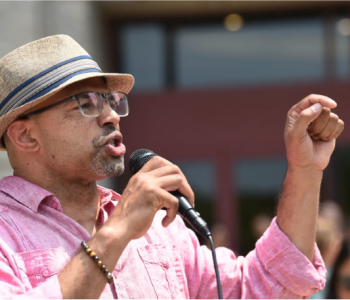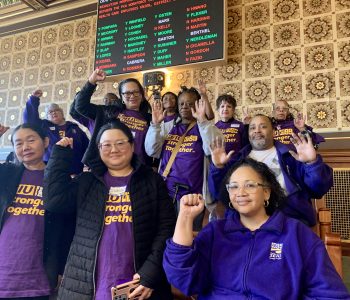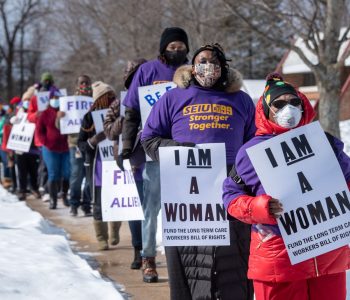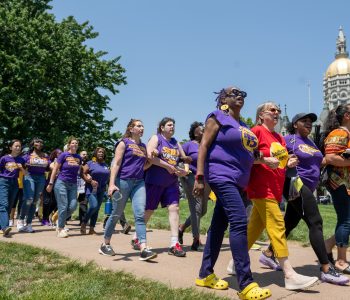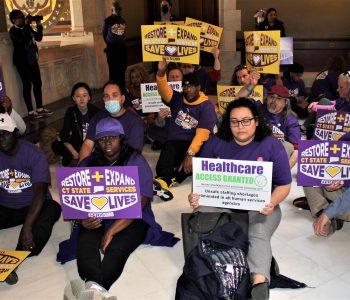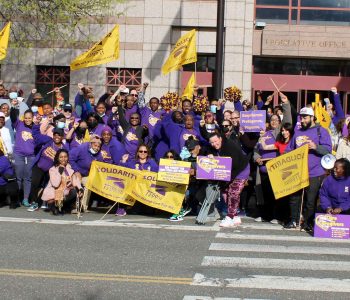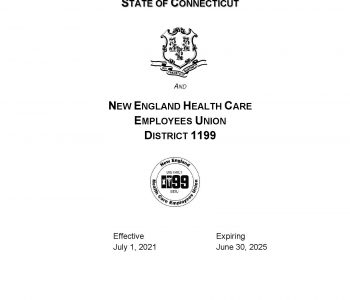As Connecticut looks to gradually reopen some businesses this month, public health care workers raised concerns Wednesday that the state could see a resurgence of coronavirus infections in the fall, leading some to suggest the opening could be too soon.
“This is a game of attrition right now, and we may not be winning this game,” said Bill Garrity, president of University Health Professionals Local 3837 and a registered nurse at UConn Health Center. One patient with COVID-19, the disease caused by the coronavirus, can sometimes take four nurses to treat at a hospital’s intensive care unit, Garrity said.
“So maybe in my opinion, May 20 may be too soon,” he said. “Coming back too soon is going to overwhelm the system. One of my favorite memes right now is ‘I’m sorry, yeah the parachute slowed us down so we can take it off’ well, we’re not on the ground yet.”
At the end of April, Gov. Ned Lamont announced the state would begin slowly reopening some businesses starting May 20. Restaurants will be limited to outdoor service only, and hair and other personal care shops will also be allowed to reopen in a limited way.
Also on Wednesday, the governor’s office received a report recommending college and university campuses could reopen over the summer, starting with research programs and administrative offices on May 20.
The report came as the state reported on Wednesday 85 new fatalities attributed to the illness, bringing the death toll to 2,718, even as the number of people hospitalized continued to fall.
Rob Baril, president of SEIU 1199, who opened the meeting with a moment of silence for state workers and their family members who have died, said public health care workers “are the glue that has held our society together over the past several weeks.”
Asked about reopening the state, Baril said the union needs “engagement with the state that’s looking beyond the 24-to-48-hour crisis period” to develop a plan to reopen the state effectively.
Dr. Chris Steele, a physician at UConn Health Center, posed reopening as a balancing act between getting people back to work while preventing the virus from spreading.
“At some point we do have to reopen, but by reopening there might be the risk that people will get sick,” Steele said.
If the state does reopen as planned, he said people should continue to be responsible in public — including avoiding congregating in large groups and wearing face masks.
“I don’t think that there’s a good answer, because I’ve heard people say ‘if I don’t get back to work, I’m not going to be able to provide for my family.’ I get that,” Steele said.
Several health care professionals on Wednesday’s call said they believe there will be a second peak of COVID-19 cases in the fall, and how well they are able to handle it will depend on the state’s preparations now.
Shirley Watson, a licensed clinical social worker with the state Department of Correction, said health care workers providing care through this wave of the virus have to live with trauma.
“If the state reopens in the near future, we have to be prepared to take care of the mental health of the health care professionals who went through the first wave, because we’re going to have to go through the second one.”
She said workers need more protective gear and resources to help the people under their care.
“This will trend in the fall, let’s just be real about that,” Watson said.
Steele said how the public health sector handles the second wave will depend on how the community and state prepare them. That includes access to mental health service, adequate supplies of protective equipment and public health campaigns.
“I think if we expand on our public health sector, we’ll 100 percent be in a better position for the fall. But if we ignore those, it could be harder coming the fall. Because usually the second wave historically is usually stronger than the first.”
Written By Peter Yankowski
